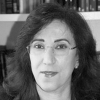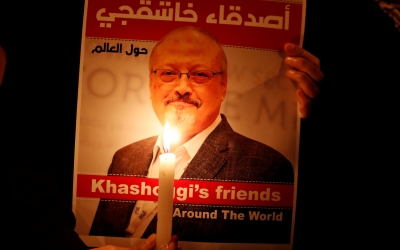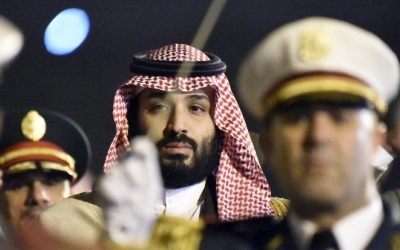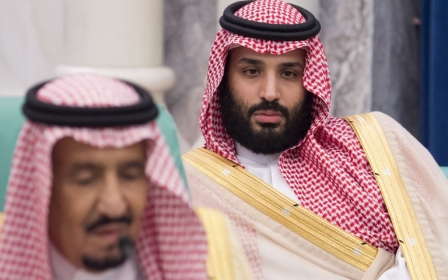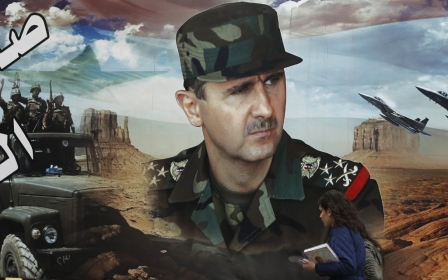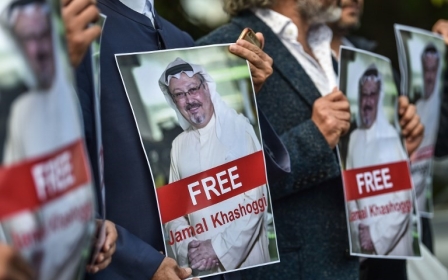Saudi Arabia as the Arab media capital? What a joke
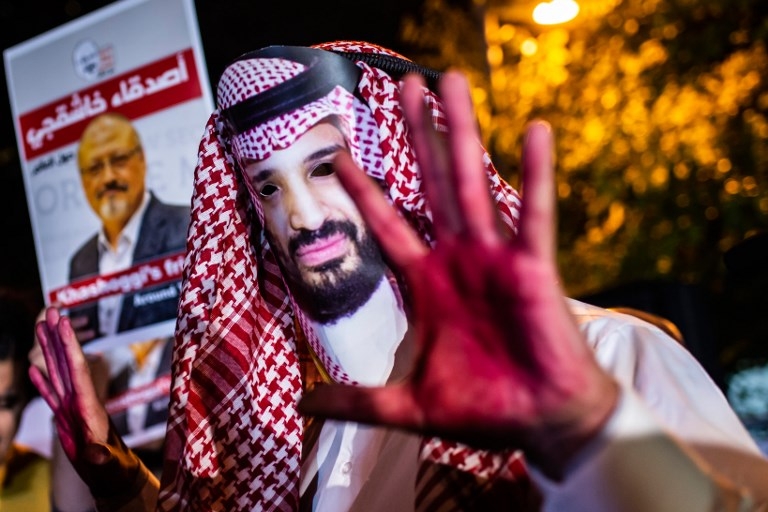
The personality cult of Saudi Crown Prince Mohammed bin Salman needs soft power as much as it needs repression.
The latest initiative to consolidate state propaganda is the creation of the Saudi Media Forum, which aims to bolster the country’s reputation. In conjunction with the Saudi Journalists Association (SJA), the international conference is set to be held this November, a year after the murder of journalist Jamal Khashoggi and the detention of several writers.
The conference will summon local and international journalists to discuss the challenges and opportunities facing the industry, and hand out awards. SJA chair Khalid al-Malik said it would become an annual event “to cement Riyadh’s name as the Arab Media Capital” and to boost its political and economic reputation.
Social media trolls
The impulse behind this suspicious initiative is perhaps the utter failure of Saudi media to contain and counter the bad publicity that rightly followed Khashoggi’s murder.
New MEE newsletter: Jerusalem Dispatch
Sign up to get the latest insights and analysis on Israel-Palestine, alongside Turkey Unpacked and other MEE newsletters
Saudi domestic media and pan-Arab satellite television utterly failed to shift public opinion in favour of the regime, as it was clear from the beginning that Riyadh had orchestrated Khashoggi’s gruesome murder inside the consulate in Istanbul.
A deluge of lies, official statements and amateur legal defence fell short of convincing an educated global audience of the regime’s innocence, even as social media trolls circulated these lies online, aiming to bewilder observers and create confusion over who might have been responsible.
While reporting on the Khashoggi case descended into trivial propaganda in favour of the regime, in an attempt to absolve the crown prince of any responsibility, the war in Yemen - now into its fifth year - remains a thorny adventure, garnering international criticism and condemnation.
Images of starving children, total devastation, and the targeting of civilians have overshadowed the glorious regime propaganda prioritising Saudi relief operations. Nobody expected Saudi media to show how missiles went astray and killed hundreds of civilians, or how air strikes targeted a Doctors Without Borders treatment centre catering to patients afflicted by cholera.
Overtures to Israel
Revamping Saudi media is an urgent matter, given the controversial drive to conclude the “deal of the century”, a Saudi-backed US initiative to reach peace with Israel without involving those most affected by occupation, deportation and bombardment - namely, the Palestinians.
Riyadh’s overtures to Israel have become an open secret, reported primarily in the Israeli, rather than Saudi, media. While news of trips to Israel by Saudis flood the internet, Saudi media often ignores or dismisses them. Official meetings and Saudi purchases of Israeli surveillance technology remain unreported and even dismissed as counter-propaganda to undermine the Saudi regime and its reputation in the eyes of its own people.
Respected foreign journalists should not be lured to accept an invitation by a regime that has shown zero tolerance for free speech
Finally, there is the media empire of Qatar, which Saudi Arabia has failed to match or undermine and is now determined to counter by positioning itself as the Arab Media Capital - a project destined to utterly fail and degenerate into lies, counter-lies and cheap political propaganda.
Saudi media is neither effective soft power nor a trusted source of news and analysis. This applies to all government-sponsored Arab media, including Qatar’s media empire and the UAE’s Sky News Arabia. All governments who think that media can be deployed as an arm of foreign policy end up disappointed, as today, social media is the main source of information for Arab and global audiences. When governments try to control this new media format, they are exposed and their propaganda debunked.
There is yet a media war to be won among the warring factions in the Gulf and beyond. Arab media narratives are only good as windows, from which to observe the ramblings of repressive regimes and their futile attempts to mask this repression.
Controlling the media
Attempts to control the media and to award prizes to the most loyal Saudi, Arab and international journalists will prove to be a counterproductive endeavour. Even the most esteemed journalists in the West who initially succumbed to Saudi propaganda about reform and transformation have abandoned these illusions.
Thomas Friedman of the New York Times and David Ignatius of the Washington Post initially wrote rosy pieces on the alleged reforms of bin Salman, only to discover how such words were supporting a bloody regime that would later murder one of their own, namely Khashoggi.
For Saudi Arabia to truly become the media capital of the Arab world, it needs freedom of speech in a democratic and transparent political system. No conference will alter this important condition; the event in November will be an opportunity for invited foreign journalists to enjoy a short trip with lavish hospitality.
Respected foreign journalists should not be lured to accept an invitation by a regime that has shown zero tolerance for free speech, going so far as to murder one of its own outspoken journalists, while many others linger in prisons.
The views expressed in this article belong to the author and do not necessarily reflect the editorial policy of Middle East Eye.
This article is available in French on Middle East Eye French edition.
Middle East Eye delivers independent and unrivalled coverage and analysis of the Middle East, North Africa and beyond. To learn more about republishing this content and the associated fees, please fill out this form. More about MEE can be found here.


